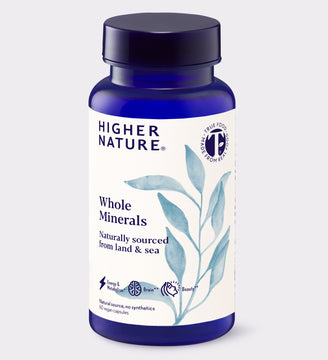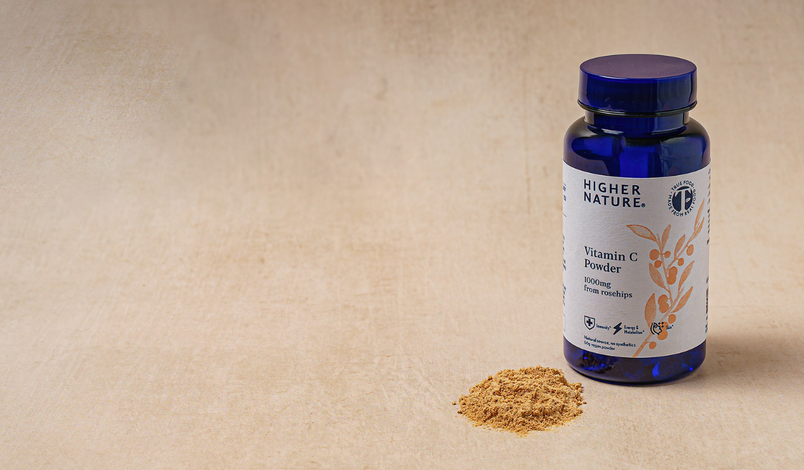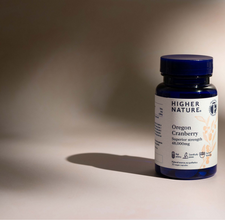
Is lockdown disrupting your Circadian rhythm?
Elizabeth Houston - Higher Nature Nutritional Therapist - Dip BCNH mbant mCNHC
Many of us are struggling to sleep during these uncertain times, with anxiety levels high it's not surprising our internal body clocks (or circadian rhythm) might be out of kilter.
Our circadian rhythm, also known as our sleep wake cycle, controls hormones that either make us feel alert during the day or tired at night. A change of routine can easily disrupt this, maybe you are getting less daylight than usual or sneaking in an afternoon nap? If our internal body clocks are confused we may feel wide awake when trying to get to sleep or feel sleepy during the day.
Here are my lifestyle tips for keeping your body clock ticking
- Our body clocks love routine. Get up and go to bed at the same time every day to sync your circadian rhythm. Even eating your meals at the same time every day can help. If you're furloughed at the moment it may seem like the ideal time to stay in your pyjamas all day on a Netflix binge. As much as this can be the perfect way to de-stress, long term it's not going to do you any favours and can even exacerbate poor mental health. Get into a routine: get up at the same time each day, get dressed and have breakfast first!
- Avoid napping. Although some people feel the benefits of a short power nap (20 minutes) most of us will find naps disrupt our night time sleep.
- Caffeine has a half-life of 3-5 hours. This means your body will eliminate half of the stimulating effects in this time. Everybody will have a different tolerance to caffeine but most people will notice better sleep if they avoid caffeinated drinks, particularly coffee and strong tea, after 2pm.
- Get outside as our circadian rhythm relies on changes in light to signal wakefulness or sleepiness. If you can't get outside at the moment sit by a window in the sunshine as much as you can.
- Aim to do at least 20-30 minutes of exercise each day but avoid strenuous exercise after 8pm. If you want to exercise in the evening, go for relaxing options which are less stimulating.
- Keep your bedroom cool and dark at night. Avoid the temptation of looking at screens before bedtime, the blue light from such devices disrupts production of melatonin. We need melatonin to be higher at bedtime as it helps us fall asleep.
- Practices to reduce anxiety can be added to your bedtime routine such as yoga, meditation and breathing exercises (see example below).
How nutrition can help
- Limit alcohol. It may help you get to sleep but it will stimulate the body to wake you up after a few hours.
- Limit sugary snacks, high sugar diets affect blood sugar levels and are linked to disruption of our circadian rhythm.
- Magnesium is an essential mineral needed for over 300 processes in the body including helping our nervous system to relax and rest. Scientists believe magnesium plays a vital role in the circadian rhythm. Food sources of magnesium include: green leafy vegetables (e.g. spinach and kale), fruit (figs, avocado, banana and raspberries), nuts and seeds, legumes (black beans, chickpeas and kidney beans) and vegetables (peas, broccoli, cabbage, green beans, artichokes, asparagus, Brussels sprouts).
- Include foods high in the amino acid tryptophan with your evening meal such as turkey, eggs, tofu and pumpkin seeds. Tryptophan is converted in the body into the molecule 5-HTP which your body uses to make the sleep hormone melatonin, higher levels of melatonin can aid healthy sleep.
- Try to have your meals at regular times each day and ideally have your evening meal by 7pm.
- Green tea, although containing some caffeine, can exert a wonderfully relaxing effect and it is believed this may be due to the theanine. This is an amino acid naturally found in both green and black tea as well as some types of mushrooms. A popular supplement in Japan used to help cope with hectic lifestyles, it is non-addictive and doesn’t cause drowsiness.
Alternate nose breathing exercise:
Nasal breathing is believed to reduce anxiety and aid sleep by slowing brainwaves and may even lower your heart rate. Try this simple exercise before bed.
- Sit on the edge of your bed with your legs crossed
- Breathe in your left nostril for 5 seconds while you gently block the right one by pressing your finger against it.
- When you exhale, release your finger and then start to breathe in through the right nostril, blocking the left nostril.
- Do this for 5 minutes, start and finish with your left nostril


















